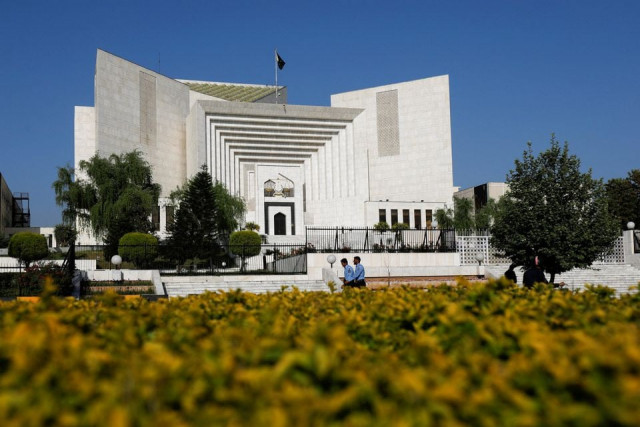Backlog of SC cases increasing at rate of 18%
A quarterly report indicates the number of pending cases has more than doubled in 10 years

The backlog of cases in the country’s apex court has been continually increasing at a rate of around 18%, as revealed in a quarterly report issued by the Supreme Court on Saturday.
According to the report, the backlog of cases as of December 31, 2023, stood at 55,971. The number of pending cases by the end of 2022 was 52,424. Interestingly, the number of pending cases in 2021 was around 54,000.
In 2020, the number of such cases was 46,902; in 2019, the number stood at 43,800, while in 2018, there were 38,197 pending cases. In 2017, some 35,600 cases were pending adjudication; 29,941 in 2016; 25,681 in 2015; 21,272 in 2014, and 20,116 in 2013.
The statistics indicate that the number of pending cases in the apex court has more than doubled in the last 10 years. According to the report, the Supreme Court is often criticized for the rising backlog of cases, but critics may not present all the facts.
On Saturday, Chief Justice of Pakistan (CJ) Qazi Faez Isa, in a detailed report covering the initial three months of his tenure, revealed that the Supreme Judicial Council (SJC) had dismissed 19 of the 29 complaints of misconduct filed against judges of superior courts.
Read All cases must not end up in SC: Isa
The CJ shared the report while addressing a workshop of Supreme Court reporters organized by the Supreme Court Bar Association (SCBA), the Pakistan Bar Council (PBC) and the Press Association of the Supreme Court.
Operating under Article 209 of the Constitution, the SJC is entrusted with overseeing the accountability of judges from both the top court and high courts. The council is composed of the CJP, the next two most senior judges of the Supreme Court, and the two most senior chief justices of the high courts.
The CJP convened a meeting of the council on Oct 27, 2023, and the earliest complaints in respect of which initial opinions had been given were considered, the quarterly report said.
Twenty-nine complaints were considered by the SJC, of which 19 were dismissed. It was decided that the judges who had been complained against and the legal heirs of those who had passed away be informed of the decision of the SJC.
Meanwhile, the lawyers filing frivolous complaints were cautioned by the SJC. CJ Isa in his message said that Article 19-A of the Constitution granted the people the fundamental right to information. Those who were paid by the public exchequer were accountable to the people. The report shared SC landmark judgments during the first three months (Sept 17 to Dec 16) of CJ Isa’s term.



















COMMENTS
Comments are moderated and generally will be posted if they are on-topic and not abusive.
For more information, please see our Comments FAQ